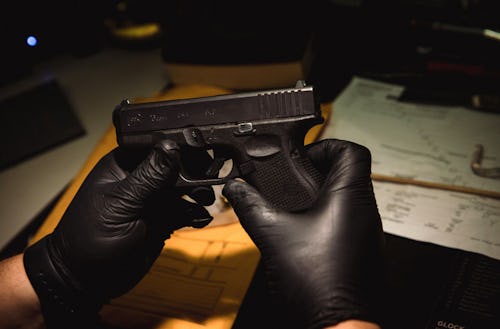
New Jersey and Minnesota have filed a lawsuit against Glock, Inc., the renowned firearms manufacturer, challenging the company over its design of semi-automatic handguns, particularly the iconic 9-millimeter model that has become synonymous with personal defense and law enforcement. This lawsuit highlights a growing concern over gun safety and the potential for firearms to be modified into deadly weapons.
The Controversy Over Gun Modifications
At the heart of this legal battle is a troubling feature of Glock's design — specifically, a dime-sized switch that allows users to convert their semi-automatic pistols into machine guns capable of firing up to 1,200 rounds per minute. This feature raises significant alarm among state officials who argue that such modifications pose an imminent threat to public safety. The lawsuit calls for an injunction to prevent Glock from selling these firearms until they can ensure that their products cannot be easily converted into fully automatic weapons.
The Legal Grounds for the Lawsuit
The states of New Jersey and Minnesota assert that Glock has failed to implement necessary changes to their firearm designs despite being aware of the risks associated with these modifications. In their filings, they argue that by allowing such conversions, Glock is not only endangering lives but also violating consumer protection laws by failing to provide safe products.
This legal action comes amidst heightened scrutiny on gun manufacturers and their responsibilities in ensuring public safety. With mass shootings becoming increasingly common across America, lawmakers are under pressure to take decisive action against companies whose products may contribute to this crisis.
A Growing Movement Against Gun Manufacturers
The lawsuits filed by New Jersey and Minnesota are part of a broader movement among states aiming to hold gun manufacturers accountable for how their products are designed and sold. Advocates argue that manufacturers should bear some responsibility when their products are used in crimes or cause harm due to unsafe features.
This case could set significant precedents regarding how firearm manufacturers operate within legal frameworks. If successful, it could pave the way for other states to pursue similar actions against not just Glock but other firearm manufacturers as well.
Public Reaction and Implications
Public reaction has been mixed; while many support stricter regulations on gun sales and designs aimed at preventing dangerous modifications, others view this as an infringement on Second Amendment rights. Gun rights advocates warn that such lawsuits could lead down a slippery slope where law-abiding citizens face increased restrictions on their ability to own firearms.
On social media platforms, discussions around this topic have ignited passionate debates about gun control versus personal freedoms. Many users express concern over how easily firearms can be modified in today’s market while others defend the right to own guns without excessive regulation.







